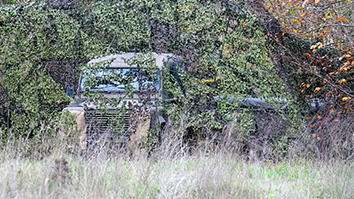Citation
Huang J, Colrain IM, Melendres MC, Karamessinis LR, Pepe ME, Samuel JM, Abi-Raad RF, Trescher WH, Marcus CL. Cortical processing of respiratory afferent stimuli during sleep in children with the obstructive sleep apnea syndrome. Sleep. 2008 Mar;31(3):403-10. doi: 10.1093/sleep/31.3.403. PMID: 18363317; PMCID: PMC2276751.
Abstract
Study objectives
Children with the obstructive sleep apnea syndrome (OSAS) have blunted upper airway responses to negative pressure, but the underlying cause remains unknown. Cortical processing of respiratory afferent information can be tested by measuring respiratory-related evoked potentials (RREPs). We hypothesized that children with OSAS have blunted RREP responses compared to normal children during sleep.
Design
During sleep, RREPs were obtained from EEG electrodes Fz, Cz, Pz during stage 2 sleep, slow wave sleep (SWS), and REM sleep. RREPs were produced with multiple short occlusions of the upper airway.
Setting
Sleep laboratory.
Participants
9 children with OSAS and 12 normal controls.
Measurements and results
Children with OSAS had significantly decreased evoked K-complex production in stage 2 sleep and slow wave sleep and significantly reduced RREP N350 and P900 components in slow wave sleep. There were no significant differences in any of the measured RREP components in stage 2 sleep, and the only REM difference was decreased P2 amplitude.
Conclusions
Results indicate that in children with OSAS, cortical processing of respiratory-related information measured with RREPs persists throughout sleep; however, RREPs during SWS are blunted compared to those seen in control children. Possible causes for this difference include a congenital deficit in neural processing reflective of a predisposition to develop OSAS, or changes in the upper airway rendering the airway less capable of transducing pressure changes following occlusion. Further research is required to evaluate RREPs after effective surgical treatment of OSAS in children, in order to distinguish between these alternatives.


